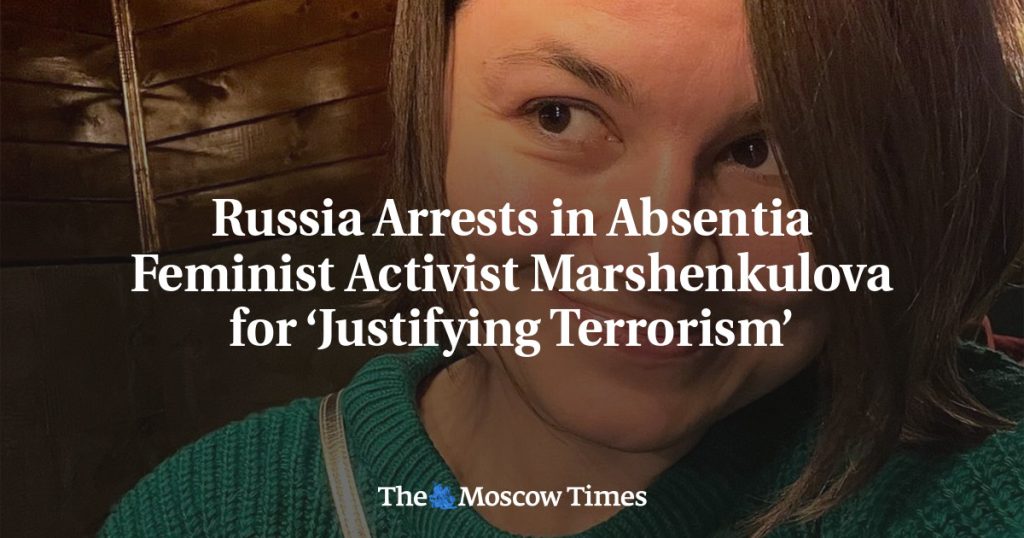A Moscow court has ordered the arrest in absentia of exiled feminist activist Zalina Marshenkulova for “justifying” the killing of a pro-war blogger. Russian investigators have charged Marshenkulova with “justifying terrorism” over a April 2023 Telegram post about the death of pro-war blogger Vladlen Tatarsky, who was killed in a St. Petersburg bomb attack. In the post, she criticized expressing condolences for Tatarsky’s death as “hypocritical.” The Perovsky District Court ruled to place Marshenkulova in pre-trial detention for two months once she is detained or extradited to Russia. Authorities believe she currently resides in Germany.
Reacting to the news of her arrest in absentia, Marshenkulova referenced a controversial 2019 Reebok ad that featured her with the quote: “Don’t sit around waiting for a man’s approval — sit on a man’s face.” She responded to a crude prison-related joke from a pro-war blogger by saying, “No thanks, I’ll sit on a face for now.” These statements highlight Marshenkulova’s defiant attitude and willingness to challenge traditional gender norms and societal expectations. Her boldness has likely contributed to her activism and the controversial nature of her social media posts.
The case against Marshenkulova brings attention to the issue of freedom of speech and expression in Russia, as she faces criminal charges for her online comments regarding the death of a pro-war blogger. The Russian government’s crackdown on dissenting voices, particularly those critical of the state or its policies, raises concerns about the suppression of independent thought and the silencing of opposition perspectives. Marshenkulova’s activism and outspoken nature have made her a target for authorities seeking to control and restrict dissident voices within the country.
The decision to arrest Marshenkulova in absentia reflects the Russian government’s determination to silence dissent and punish those who challenge the status quo. By targeting activists like Marshenkulova, the government seeks to intimidate and discourage others from speaking out against its actions and policies. The use of legal mechanisms to suppress dissenting voices undermines the principles of freedom of speech and democracy, creating a climate of fear and censorship that restricts the ability of individuals to express their opinions and engage in public discourse.
In responding to her arrest, Marshenkulova’s defiant attitude and refusal to back down demonstrate her commitment to her beliefs and her willingness to face consequences for expressing her views. By referencing controversial ad campaigns and engaging in provocative statements, she continues to draw attention to her cause and challenge societal norms. Marshenkulova’s arrest in absentia is likely to further fuel debate about freedom of speech, censorship, and government repression in Russia, shining a spotlight on the ongoing struggle for individual rights and liberties in the face of authoritarian rule.
The case of Zalina Marshenkulova serves as a reminder of the challenges faced by activists and dissidents in Russia, where freedom of speech and expression are increasingly under threat. By targeting individuals who dare to speak out against the government and its policies, authorities seek to maintain control and suppress opposition. Marshenkulova’s arrest in absentia and the charges against her highlight the dangers of challenging the status quo in a repressive political environment, but her defiance and refusal to be silenced provide inspiration for others fighting for their rights and freedoms.


